
The Grammys’ best children’s music album category rarely generates headlines, but it did in late 2020 when three of the five contenders declined their nominations to protest the fact that all of the nominees were white artists — a result that felt especially disheartening amid the Black Lives Matter movement and the country’s larger reckoning with racial equity.
In December 2020, Alastair Moock, Dog on Fleas and the Okee Dokee Brothers dropped out of the Grammy race and stood in solidarity with artists of color in the family music space. Even though Family Music Forward — a collective whose stated mission is “to transform family music by supporting Black artists, children, and communities and dismantling individual, institutional, and systemic racial bias within the industry” — was the first to bring attention to the issue in November 2020, national media coverage followed only when the three white contenders decided to decline their nominations.
“When Black people speak, white supremacy puts muffs on white people’s ears,” says Pierce Freelon, a founding member of Family Music Forward and a 2022 Grammy nominee for best children’s music album. “They can’t hear us. It takes a white person to pull the muff back. There’s a long legacy of white allies who show up for Black artists, put their careers on the line, and make professional sacrifices to create space for Black voices to be amplified.”
[embedded content]
Even though the route to progress wasn’t perfect, the 2021 ballot for best children’s music album revealed vastly different results from last cycle. In the aftermath of the controversy, Family Music Forward sat down with Recording Academy CEO Harvey Mason, jr. and co-president Valeisha Butterfield Jones to figure out how to better represent the diversity within the family music space.
Aaron Nigel Smith, another founding member of Family Music Forward, adds that the problem predates the 2020 ballot. “More than 50% of children in the U.S. are POC, yet in previous years, only 12% of the nominees in the children’s music space represented people of color,” he says.
With this feedback in mind, the Academy developed policy changes early in 2021. “Having input from the community is important,” said Mason in Billboard’s recent cover story (dated Dec. 11). “It’s important that we evaluate it and find out actionable steps on how to be better.”
Last month, five artists of color were nominated for best children’s music album —Lucky Diaz and the Family Jam Band (Crayon Kids), 123 Andrés (Actívate), 1 Tribe Collective (All One Tribe), Pierce Freelon (Black to the Future), and Falu (A Colorful World).
“Over the past year, we held a series of listening sessions and were very intentional about moving the feedback that we heard to action,” said Butterfield Jones in a statement to Billboard. “We are thrilled with the diverse nominees reflected in the category this year and will continue to drive more equitable outcomes like this.”
Most of the contenders are receiving their first Grammy nominations following many years of submitting their work. After sending in his work for Grammy consideration eight times, Diaz, who is Mexican-American, said, “It’s good to be included. I’m super grateful. But we did get a lot of ‘finally’ messages [from our peers].”
[embedded content]
Diaz adds that the Grammy nod has also brought some hurtful responses: “It’s an interesting experience with what the voting pool is in the Recording Academy, and the politics involved in it. I had a Grammy member call me two days ago to tell me that we were only nominated because I’m Mexican,” Diaz adds.
“I hope that [having all BIPOC nominees this year] doesn’t fuel any kind of backlash,” shares Christina Sanabria of 123 Andrés. “Sometimes progress looks a little messy.”
The Latin Grammys have provided an alternate route to acknowledgement for both 123 Andrés and Lucky Diaz, who are both U.S.–based, yet have won Latin Grammys in the past. “I think that there’s many people who feel that there’s space for us somewhere else, like at the Latin Grammys, which we have been very successful at,” says Diaz.
Smith — who met with the Academy as a founding member of Family Music Forward and is a first-time nominee (All One Tribe) after seven tries — reveals how happy he felt when his project was called. “I was elated. I couldn’t believe it. I was preparing myself for disappointment after all the years of not getting called. But when I heard One Tribe, I felt like the work was worth it to be able to demonstrate change.”
Despite feeling overwhelming joy, Smith also recognizes that the results may have been influenced by the Academy’s very public racial reckoning during the last Grammy season. “I feel like maybe the voting members are in a moment when they feel compelled to acknowledge our BIPOC members, and I wish that it didn’t feel like there was a sense of urgency around it,” Smith adds.
[embedded content]
So, what factors helped shape this year’s complete reversal of results?
All the nominees interviewed in this piece named the elimination of the nominations review committees as a key reason behind the shift. During collaborative sessions with the Academy, Freelon notes how the Academy didn’t reveal the demographics behind the committee that worked on the best children’s album category and how, “A lot of the critique around the [lack of] transparency was on the anonymous nature of the review committees. Because we suspect that there wasn’t enough melanin up in there.”
In April, it was announced that nominations will now “be determined by a majority, peer-to-peer vote of voting members of the Recording Academy,” according to a release. Instead of going through the review process conducted by a committee, potential nominees will now be chosen by their peers for non-craft categories, including best children’s music album.
The Academy’s reduction in the number of fields that members can vote in was another factor mentioned by the nominees. “The reduction of the number of [fields] that one can vote in [from five] to three was another big paradigm shift,” says Freelon. Smith adds how limiting the number of fields helped ensure that only experts in the genre were voting in their respective categories and “made the decision more critical.”
Extending Grammy membership to more voters also played a role in delivering results. Sanabria shares how, “A lot of people didn’t even realize that you could become members. You look at something that historically has not acknowledged people who look and sound like you, so you think, ‘That’s not for me.’ And we wanted to say, ‘No, this actually is for you.’” Smith adds that, “We advocated to increase membership amongst BIPOC members. Members of color went from 12% to 19% in just one year.”
[embedded content]
In addition, listening sessions with both Grammy members and the general public increased awareness of the different genres within the children’s music space. According to Sanabria, more efforts were made to make “voters more sensitive to the idea that different kinds of music [are] judged by different barometers. The sampling in a hip-hop track is considered art just as much as a solo with a mandolin.”
Smith echoes the importance of the listening sessions and says that in the group discussions, “we talked about what diversity means and how we can listen to music with a different lens — how to listen to a hip-hop song if we’re a classical musician and how to respect the artistry both ways. Instead of listening through the lens of a standard classic, European (perspective). I think listener education was key as well.”
As a whole, Smith credits the visible changes to the team effort demonstrated by all sides, “from the Recording Academy, to the voting members, to the musicians, to the consumers, everyone being on the same page and being open to receiving the wealth that we have to offer as Black and brown musicians.”
Moving forward, the artists hope that the music is what is remembered well beyond the controversy. “At the end of the day, my dream is for the work to speak, for the work to be the deciding factor in the success of these things,” says Diaz.
Freelon enthuses, “All the candidates — Lucky Diaz, 1 Tribe, Falu, and 123 Andrés — and all their albums are dope. So it feels particularly good this year to be nominated alongside excellence. That’s the interesting thing about privilege. People aren’t asking for a handout. We’re just asking for equity.”
[embedded content]
After all, the nominated artists in the children’s music space are well positioned to educate the next generation of music listeners.
Freelon dramatically illustrates the power of disrupting the narrative through the medium of children’s music. “I’m a Black man singing bedtime stories. That’s what my kids see, but some people don’t ever see that. If there’s a kid out there who grows up listening to my music and becomes a police officer in 2048, and they see a guy in a hoodie with locks and a beard, I want their first thought to be, ‘That looks like the guy who used to sing me to sleep every night.’ And that moment of cognitive dissonance, that moment of recognizing humanity in another person, could be the difference between going home to see their family or being shot dead on the spot.”

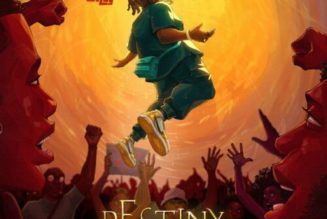

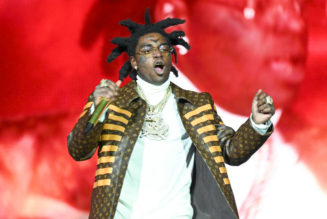


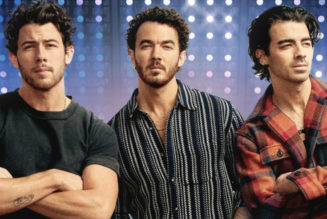

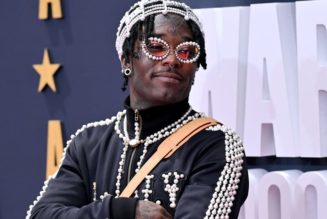
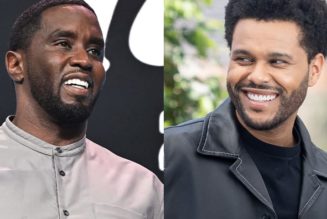
Tagged: 2022 Grammys, Awards, entertainment blog, Grammys, music, music blog, recording academy